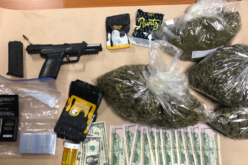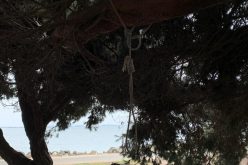Journalist who defied Feds appeals university sanction
BERKELEY – A young journalist who gained national attention for challenging the government on issues of press freedom is appealing a disciplinary action related to his reporting — this time, from the university where he is studying journalism.

Josh Wolf, now a graduate student at the University of California, Berkeley, made headlines when he refused to provide the FBI with video he recorded while covering a protest in San Francisco in 2005. Federal authorities subpoenaed Wolf’s unaired footage and demanded he testify before a grand jury about events that transpired during the demonstration. Arguing that a “free press in a democracy cannot act as an extension of the justice department,” the then 24-year-old Wolf did not comply and was held in contempt of court. He was incarcerated for 226 days, the longest imprisonment ever served by an American journalist for defying government demands to share unpublished information.
After his release, Wolf accepted an offer from the Graduate School of Journalism at UC Berkeley to enroll in their masters program, but has now been sanctioned by a disciplinary panel that reports to top university administrators. The panel was responding to allegations made by the campus-wide Center for Student Conduct and Community Standards, which enforces rules of student behavior.
In a report released May 11, the disciplinary panel — a trio composed of an academic advisor, an undergraduate and a professor of ophthalmology — found Wolf guilty of three violations of the university’s code of student conduct.
Like the federal charges brought against him five years ago, the allegations against Wolf stemmed from his presence at a protest. On Nov. 20, 2009, a group of about 40 students occupied Wheeler Hall, a university building, demanding that the administration reverse its decision to lay off custodial workers due to budget cuts. When police attempted to eject the students, Wolf followed them as they huddled into a room and held the officers at bay with improvised barricades and by leaning against the doors.
The administration considered the occupation of Wheeler Hall to be trespassing rather than a legitimate act of protest. According to the report issued by the disciplinary panel, Wolf “may have entered Wheeler Hall with the intent of a video journalist,” and did conduct interviews with protestors. However, the panel determined that Wolf did not have permission to come inside Wheeler Hall, which was closed at the time, a scenario they likened to reporting from Guantanamo Bay without government approval.
The disciplinary panel also drew a comparison between the situation in Wheeler Hall and a forest fire, referring to testimony from a journalism professor who had done reporting near active fires.
The professor, who testified in Wolf’s defense, stated that if “firefighters ordered him to stop filming and assist them in extinguishing the fire,” he would have done so. They found that Wolf violated the student code of conduct because he did not help officers get into the blockaded room, though Wolf told CrimeVoice “the idea is absurd.”
Berkeley’s student behavior code requires students to follow the instructions of campus officials while on property owned by the university, but rather than “comply with a direct order” to assist the police in getting through the door, “Mr. Wolf continued to video record,” the report says.
Describing the scene, Wolf said that the door handles were secured with bike locks, rope and broomsticks, and 40 students were guarding the room. Evoking a trope of Hollywood action movies, he said he might have broken through if he “had karate-chopped the door, maybe.”
Wolf recorded so much video of the events that the batteries on his camera ran out, which turned out to have important consequences for his case.
While waiting for his camera to charge during a lull in the standoff, Wolf did homework on his laptop, which the panel cited as a key factor in determining whether he was in the room in his capacity as a journalist or simply as a student. They concluded that Wolf “could have interviewed the other student protestors [sic] by other means,” and by failing to do so, he “transitioned from the role of a journalist to that of a student … in protest.”
A photo showed Wolf waving from a window during the occupation of the room inside Wheeler Hall, an act the panel found to be a violation of good journalistic practice.
“They said that when I waved to a classmate, I became a protester,” Wolf said in response to the report. “And not only that, but I violated the ethics of staying detached from the story. I became part of the story at the point that I waved.”
Wolf is not facing any criminal or civil charges in connection with the events described in the disciplinary report, and says that he has received strong support from the Berkeley’s Graduate School of Journalism, where he is completing a master’s degree.
In their final recommendation, the three authors of the report recommended that Wolf write a five-page paper “on the role of student journalism on a university campus,” despite finding that Wolf had not been acting as a journalist during the protests. Wolf, with help from recent law school graduates, appealed the ruling based on state and Constitutional law and argued against the panel’s interpretation of the student code of conduct.
The 25-page appeal was filed with UC Berkeley yesterday afternoon.












